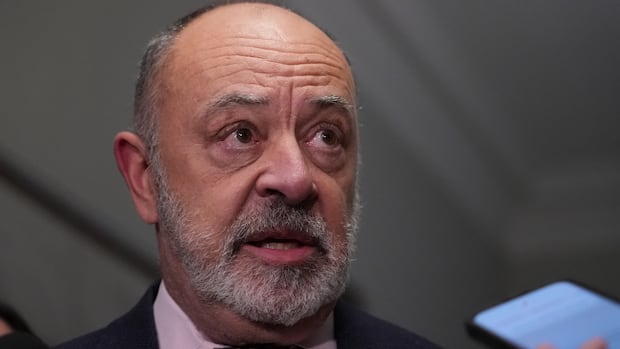Health
Audit Reveals Major Flaws in Quebec’s Santé Québec Project

A recent audit has uncovered significant missteps by Quebec’s Health Ministry, leading to the failure of the Santé Québec digital transformation initiative. According to a report from the province’s Cybersecurity Ministry, the project was severely compromised due to management errors and a lack of oversight. The findings, disclosed by Radio-Canada, are part of a 34-page document prepared in early 2025.
The Système d’information des finances et de l’approvisionnement (SIFA) was intended to overhaul supply management and payroll systems within Quebec’s health-care framework. Contracted in March 2024 for $408 million, the project was awarded to the firm LGS, the same company previously involved in the controversial SAAQclic project.
The audit also revealed that the project faced substantial cost overruns, escalating to an estimated total of $630 million, including both developmental and operational phases. In an effort to cover these unexpected expenses, Health Minister Christian Dubé sought approval from Premier François Legault‘s cabinet to redirect a budget for human resources development, potentially raising the total cost to $725 million. Initially, the project was projected to cost $96 million.
Mismanagement and Delegation Issues
A critical finding of the audit was the Health Ministry’s decision to delegate the management of the project’s tender process to the CIUSSS of Saguenay–Lac-Saint-Jean, an organization unprepared for such a significant undertaking. The report indicates that the Health Ministry gradually relinquished its responsibilities, resulting in a “lack of involvement” that significantly hampered the project’s oversight.
The audit highlighted that crucial departments, such as judicial affairs and contract management, were not consulted during the tendering process. The CIUSSS even required the assistance of a private law firm to navigate legal complexities, underscoring its inadequate resources.
Compromised Tender Process and Increased Risks
Mistakes by the CIUSSS further jeopardized the integrity of the tendering process. The audit identified that alterations made during the bidding increased the government’s risk exposure significantly. For instance, at the request of suppliers, the CIUSSS withdrew critical performance guarantees, which typically protect against supplier defaults. Additionally, the CIUSSS eliminated a termination clause that would have allowed the government to withdraw from the contract without penalty.
The audit criticized the CIUSSS for extending the contract’s notice period to five years without justifiable analysis, effectively locking the government into a costly agreement. Consequently, terminating the contract with LGS now carries a financial penalty of at least $150 million.
The report also raised concerns over governance. As of May 2024, the SIFA project office had only two resources from the CIUSSS and none from the Health Ministry, potentially creating an imbalance of power favoring LGS. Alejandro Romero-Torres, a professor at the École des sciences de la gestion de l’Université du Québec à Montréal, commented that it is unusual for a supplier to wield such significant control over project management.
Ongoing Investigations and Future Implications
The Health Ministry and Dubé’s office have not provided comments regarding the audit. Meanwhile, the CIUSSS of Saguenay–Lac-Saint-Jean referred inquiries to Santé Québec, which has taken over the SIFA project. Santé Québec indicated that an investigation by the Autorité des marchés publics is currently ongoing, and they will refrain from commenting until it concludes.
LGS addressed the situation through its parent company, IBM Canada, stating, “While we cannot comment on the details, LGS has always acted transparently and in compliance with its contracts, and remains committed to providing high-quality services to meet its clients’ expectations.”
The audit’s revelations raise serious questions about the management and oversight of significant public funds in Quebec’s healthcare digital transformation efforts, underscoring the need for stringent governance in future projects.
-

 Science3 months ago
Science3 months agoToyoake City Proposes Daily Two-Hour Smartphone Use Limit
-

 Top Stories3 months ago
Top Stories3 months agoPedestrian Fatally Injured in Esquimalt Collision on August 14
-

 Health3 months ago
Health3 months agoB.C. Review Reveals Urgent Need for Rare-Disease Drug Reforms
-

 Technology3 months ago
Technology3 months agoDark Adventure Game “Bye Sweet Carole” Set for October Release
-

 World3 months ago
World3 months agoJimmy Lai’s Defense Challenges Charges Under National Security Law
-

 Lifestyle3 months ago
Lifestyle3 months agoVictoria’s Pop-Up Shop Shines Light on B.C.’s Wolf Cull
-

 Technology3 months ago
Technology3 months agoKonami Revives Iconic Metal Gear Solid Delta Ahead of Release
-

 Technology3 months ago
Technology3 months agoApple Expands Self-Service Repair Program to Canada
-

 Technology3 months ago
Technology3 months agoSnapmaker U1 Color 3D Printer Redefines Speed and Sustainability
-

 Technology3 months ago
Technology3 months agoAION Folding Knife: Redefining EDC Design with Premium Materials
-

 Business3 months ago
Business3 months agoGordon Murray Automotive Unveils S1 LM and Le Mans GTR at Monterey
-

 Technology3 months ago
Technology3 months agoSolve Today’s Wordle Challenge: Hints and Answer for August 19









